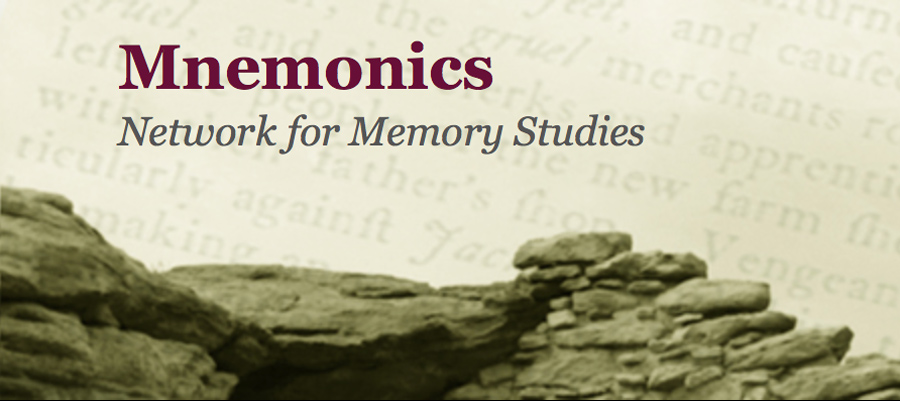
Mnemonics Summer School “Media of Memory”
Event date: 21-23 August 2014
Location: Stockholm, Sweden
For the third edition of its annual summer school, the Mnemonics network, an international collaborative initiative for graduate education in memory studies, invites paper proposals that address the relations between media and cultural memory.
The study of cultural memory is increasingly focusing on the often conflicting, overlapping, fractured, flexible, and dynamic nature of processes of remembrance. This emphasis on the mobility of memory makes the study of the media of memory an urgent task; as memories of the past are always constructed in ongoing processes of remediation, they are subject to the possibilities and constraints of medial carriers. The archiving of vast amounts of data is, for instance, impossible in oral cultures; television and photography, for their part, have enabled more visceral modes of connectedness, while the increased retrievability of the past in a digital age has paradoxically also inspired forms of public amnesia. Questions about media of memory have become all the more urgent through the rise of digital media, which has enabled media platforms like YouTube, Twitter, and Facebook to generate transnational as well as vernacular memory communities.
The summer school welcomes paper proposals that explore the interface of media and memory. Possible topics include, but are emphatically not restricted to:
- How do particular older as well as newer media serve as memory agents—as cues, catalysts, storage media?
- What novel forms of memory community and agency do new media make possible?
- How do particular media constrain communities’ abilities to remember and forget?
- What is the division of labor between different local and global media?
- How do new media affect issues surrounding the control, the unequal accessibility, and the ownership of memory?
- How does the study of memory respond to recent medial developments?
- What is the role of, for instance, digital humanities in this new research context?
Please send a 300-word abstract for a 15-minute paper (including title, presenter’s name, and institutional affiliation), a description of your graduate research project (one paragraph), and a short CV (max. one page) as a single Word document to mnemonics@english.su.se by 1 April 2014.
Full CFP available on the Mnemonics website.
